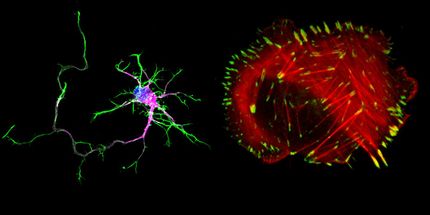Discovery of genetic mutation in Leigh syndrome
Researchers at the Montreal Neurological Institute and Hospital (The Neuro), McGill University have discovered a genetic mutation underlying late-onset Leigh syndrome, a rare inherited metabolic disorder characterized by the degeneration of the central nervous system. The study published in Nature genetics, provides vital insights into the cell biology of this neurological disorder and will lead to the development of diagnostic and predictive tests allowing for family and genetic counseling.
Leigh syndrome usually begins in early childhood and is caused by genetic mutations which result in mitochondrial dysfunction. The first signs of the disorder are often poor sucking ability, loss of head control, and loss of acquired motor skills or movement. As the disorder progresses, symptoms may also include generalized weakness, lack of muscle tone, episodes of lactic acidosis and breathing problems. Death usually occurs within a few years. In rare cases, “late onset” Leigh syndrome begins during adolescence or early adulthood and progresses more slowly than the classical form. Currently, there is no cure and treatment is limited and not very effective.
“Defects in the protein production machinery, or translation, are among the most common causes of mitochondrial disease,” says Dr. Eric Shoubridge, neuroscientist at The Neuro and lead investigator in the study, “and the mechanisms that regulate translation have until now remained largely unknown.”
“Using molecular biological techniques and DNA analysis, we were able to pin point a mutation in the TACO1 gene which encodes a translational activator important for the proper production of a protein called COX1. This study is also the first to identify a protein of this nature in humans.COX1 is a critical component of one of the enzymes in the energy production pathway in cells, and disruptions in COX1 production, lead to loss of enzyme activity and the symptoms in Leigh Syndrome.”
Researchers in Dr. Shoubridge’s lab at The Neuro were the first to discover the gene implicated in the most common form of Leigh syndrome and are now studying various forms of the disease. This includes the French-Canadian form common in the Saguenay-Lac St-Jean region of Quebec which is associated with a different genetic mutation, but the same biochemical defect, and similar presentation to the form investigated in this study. Neuro researchers are also collaborating on Le Grand Defi led by Pierre Lavoie, an initiative to raise awareness and funds for research into the disease.
Topics
Organizations
Other news from the department science

Get the life science industry in your inbox
From now on, don't miss a thing: Our newsletter for biotechnology, pharma and life sciences brings you up to date every Tuesday and Thursday. The latest industry news, product highlights and innovations - compact and easy to understand in your inbox. Researched by us so you don't have to.




















































